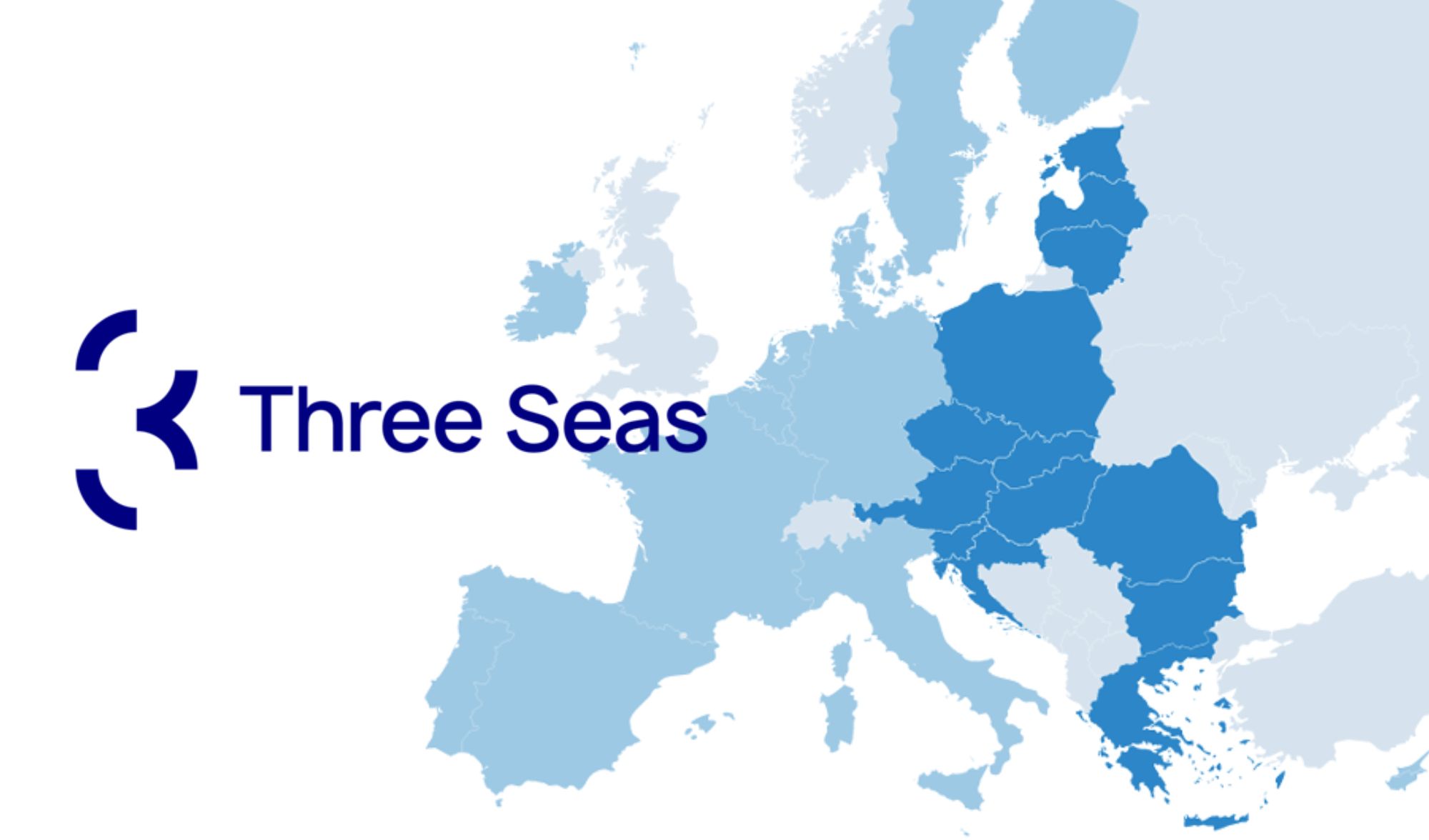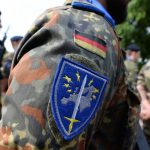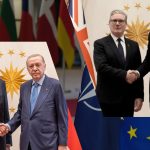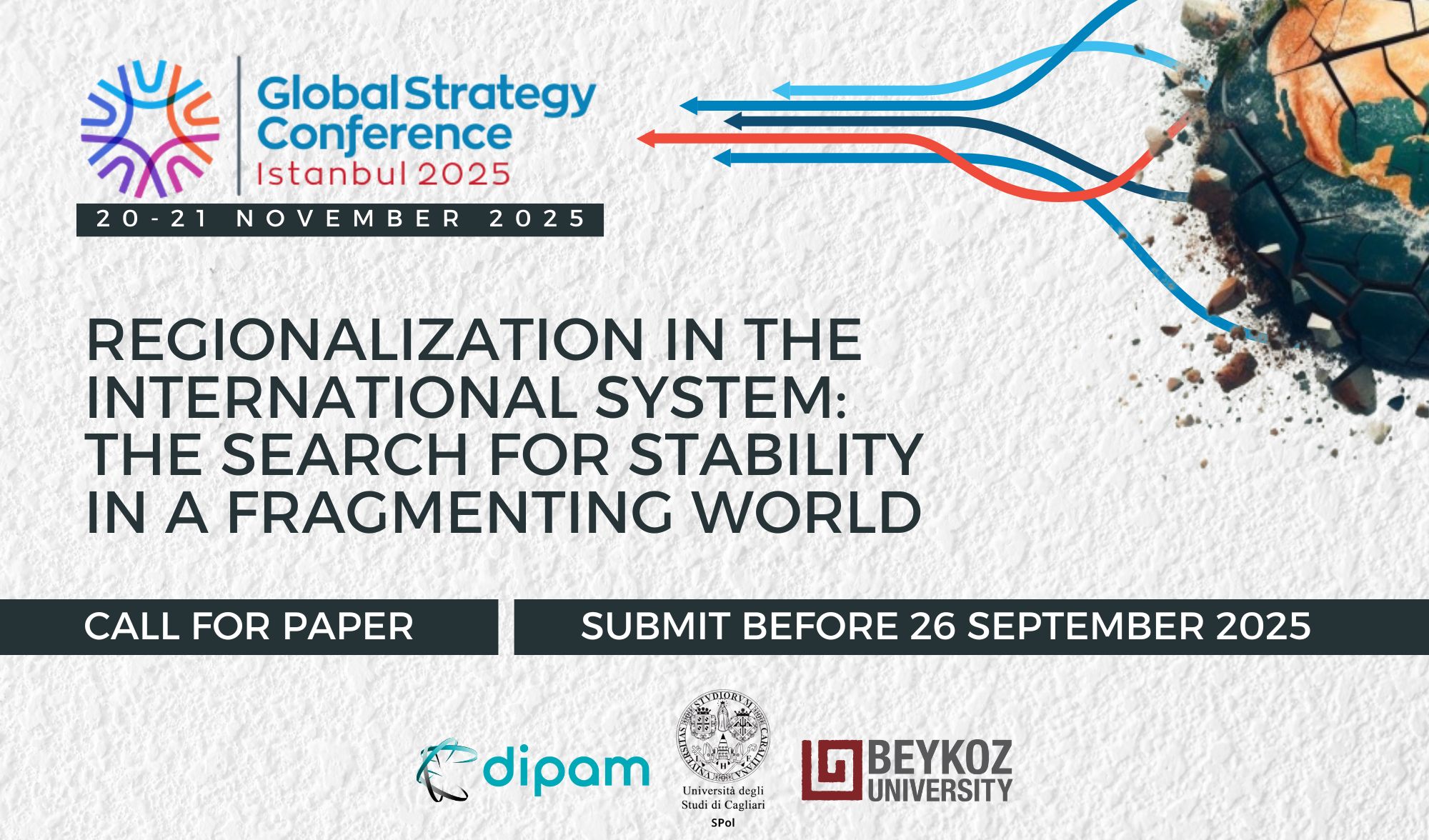Europe’s security architecture is facing perhaps its biggest test since the Cold War. Russia’s aggression in Ukraine has radically redefined threat perceptions on NATO’s eastern flank. In addition to traditional alliance structures, regional cooperation has grown in importance. In this context, the Three Seas Initiative (3SI), long associated with infrastructure and economic integration, has come to be seen not only as a development project but also as a strategic security platform.
This initiative, which is not an independent organization under international law, was built on the basis of regional cooperation with a similar goal as the Visegrád Group (1991), the Central European Defence Cooperation (CEDC) (2010), the Bucharest Nine (2015) and the Lublin Triangle (2020).
Spearheaded by Poland and Croatia in 2015, the initiative covers 13 European Union countries between the Baltic, Adriatic (Mediterranean) and Black Seas. The participation of Germany, the European Commission, the United States and Japan as strategic partners (observers) symbolizes Western strategic support for the project. Today, however, this geographical corridor is being redefined not only as an area where infrastructure lines converge, but also as a security strip against Chinese influence and Russian pressure.
The Transforming Role of 3SI
The Three Seas Initiative was not a political or military alliance, unlike the former Intermarium project that Poland wanted in the period between the two world wars, but a platform for the heads of EU member states of the region to come together with the goal of economic development around energy, transportation and digital connectivity.
In particular, the priorities of the initiative were to reduce energy dependence on Russia and to make the region more integrated within the EU through alternative natural gas routes and digital infrastructure projects. To realize these goals, a joint investment fund was established and macro-regional projects were supported. Currently, 10% of the projects supported by this fund are in the digital sector, 39% in energy and 51% in transport.[1] After 2022, however, this agenda has shifted to defense and resilience.
For the US, the real strategic sponsor of the 3SI, it is about revitalizing the old Warsaw Pact, first against Moscow and then against Beijing. Among the guests at the initiative’s first summit in Dubrovnik in 2016 were Chinese Vice Foreign Minister Liu Haixing and General James L. Jones, former National Security Advisor to President Barack Obama, with the aim of linking the project with the new Silk Road. Jones emphasized the role this initiative could play in the development of NATO in Europe. “This is a real transatlantic project with enormous geopolitical, geostrategic and geoeconomic implications,” said Trump at the 3SI Summit in Warsaw in 2017. In his speech in Warsaw, Donald Trump defined the ultimate goal of his visit with a specific focus on Russia: “We want to give you access to alternative energy sources so that Poland and its neighbors are no longer held hostage to a single energy supplier.” In 2020, the US donation of $300 million to the Initiative’s fund and the announcement by then US Secretary of State Michael Popeo to invest one billion dollars in the development of the 3SI countries demonstrated the US interest in strengthening its relations with Central and Eastern Europe. This support should certainly not be seen as a sacrifice, but rather as a means to maintain geostrategic concerns and the US hegemonic position in the world. We can expect Trump to continue this support today.
China’s growing influence in Central and Eastern Europe is one of the developments that the US sees as a major threat. With US support, the 3SI has become an important counterweight to Chinese initiatives such as the Belt and Road Initiative and the 14+1 Platform for Cooperation among Central and Eastern European Countries, which aim to deepen China’s presence in the region. The Initiative is thought to limit Beijing’s influence in Western and Eastern Europe by creating secure supply chains, ensuring energy security and limiting Chinese investments in the region.
Russia also played a decisive and transformative role for the initiative. Eastern members such as Poland, Romania and the Baltic states increased their defense spending and deepened their integration with NATO in the wake of the Ukraine war. The 3SI serves as an intermediate platform for strengthening both regional coordination and bilateral relations with the United States. In particular, the US has supported the region’s transatlantic integration not only economically but also militarily through its participation in the investment fund. As a detail to be considered within the framework of this integration, it should be noted that the President of Ukraine was not invited to the 2025 Warsaw Summit, unlike last year.
This support can be linked to China and Russia, but also to the Trump administration’s bypassing of Western Europe, which it sees as a weak contributor to NATO, and to the sale of energy and technology to Central Europe by the US, which is now an oil and gas exporter.
However, the transformation of the 3SI has been driven not only by the Ukraine war, but also by internal European ruptures. As the post-Brexit east-west divide in the EU deepened, Germany and France’s slow action on security issues pushed Poland and the Baltic states to build their own alternative security apparatus. At this point, the Three Seas Initiative began to assume the role of a kind of “Eastern European security coordination” within the EU.
Türkiye: A Player from the Outside in
Türkiye is not a formal member of the 3SI. But as a country located on the southern shore of the Black Sea and playing a central role in the regional security architecture, it is both at the edge and at the center of this transformation. Ankara has significantly strengthened its position on Black Sea security in recent years. Through its consistent implementation of the Montreux regime, its policy of balance with Russia, as well as its support to Ukraine with UCAVs, Ankara has shown itself to be a multifaceted actor. Moreover, with the inclusion of Greece in the Initiative, the initiative has extended to the Eastern Mediterranean, where it is also in contact with Türkiye.
However, Türkiye’s lack of official involvement in the 3SI does not mean that its influence is limited. On the contrary, when it comes to energy corridors, logistics lines and military cooperation, an Eastern European security vision without Türkiye is incomplete. Bilateral defense ties with Romania, Bulgaria and Poland in particular are on the rise, while under the NATO umbrella Türkiye plays an active role in the stability of this region.
In the future, as the security dimension of the 3SI expands, Türkiye’s inclusion as an observer or partner could be discussed more concretely. This would not only open up a new space for EU-Türkiye relations, but also make NATO’s eastern flank more integrated.
Weaknesses, Challenges and Infrastructure
The main challenge for the Three Seas Initiative is its heterogeneous membership. It is not easy for these countries with different economic, political and even security priorities to develop a common strategy. Moreover, the distant approach of EU founding members such as Germany and France to this initiative may limit its legitimacy within the EU.
At this point, developing more flexible, project-based cooperation with external stakeholders such as Türkiye could give the 3SI both flexibility and strategic depth. The security of the Black Sea in particular will remain critical to limit Russia’s naval power and secure regional trade routes. Türkiye’s balancing role here is complementary to the 3SI.
As Russia’s capacity to play the gas card diminishes, alternative energy routes are growing in importance. Here, Türkiye continues to be an energy gateway for both Azerbaijani gas and Eastern Mediterranean resources to reach Europe.
As countries within the 3SI become more interconnected in areas such as LNG terminals, power grids and digital infrastructure, Türkiye is becoming a natural extension of this integration. Therefore, strengthening Türkiye’s relationship with this structure, not only in terms of security but also economic cooperation, would not only reinforce Ankara’s regional position but also open the door to alternative integration models within the EU.
Conclusion: 3SI in Search of a New Security Architecture
The future of security in Europe is no longer shaped solely by Brussels-centered decisions. Regional initiatives are becoming the cornerstones of new security architectures. The Three Seas Initiative is transforming from an economic development project into a center of regional solidarity and strategic resilience. This transformation can offer a security umbrella that complements NATO and diversifies the EU. Europe’s future will depend as much on common threat perceptions as on common solution platforms. The Three Seas Initiative is poised to become an important part of this quest.
However, there are still many obstacles to its success. In particular, the 3SI countries seem to have some different policies and interests. The policy towards Russia is one of these differences. The fear of Russia is much less in the Czech Republic and Hungary than in Poland and the Baltic states. For example, the fact that the construction of Nord Stream 2 is opposed by the other countries of the Initiative, while countries like Hungary and the Czech Republic are not, may cause them to move away from the 3SI. On the other hand, relations with Germany are of particular importance for the majority of the 3SI countries. For this reason, the Czechs do not want to take part in any project that could be seen as directed against Germany. This is also the case for Romania, which is concerned about the deterioration of relations between Poland and Germany. For Bucharest, the 3SI is not a platform against Berlin, Paris or Brussels; even Slovakia, which sees Poland as an important partner, wants to remain in the core of the EU above all. The Baltic states are increasingly turning towards Scandinavia.
Some see the 3SI as an attempt by Warsaw to create a bloc against Berlin and Paris, imposing its leadership to block the Franco-German duopoly in the EU. Some critics in Western Europe argue that Poland should aim to join the group of the most important EU countries – Germany, France, Spain and Italy – rather than building an Initiative that could compete with Western Europe. In order for the 3SI to avoid a centrifugal effect, it needs to be given the appropriate space within the EU and sufficient attention in the restructuring or policy architectures it seeks.
The future restructuring of the EU, especially in the energy and economic sectors, could be a way to renew Türkiye’s stalled relationship with its Western allies. Moreover, the Three Seas Initiative (3SI) could be seen as a means to increase synergies between Türkiye and its Western allies, provided that its members agree to open the initiative to some form of cooperation with non-EU countries.
[1]https://3seas.eu/about/progressreport
This article has been published by Anadolu Agency (in Turkish) on April 29, 2025.










